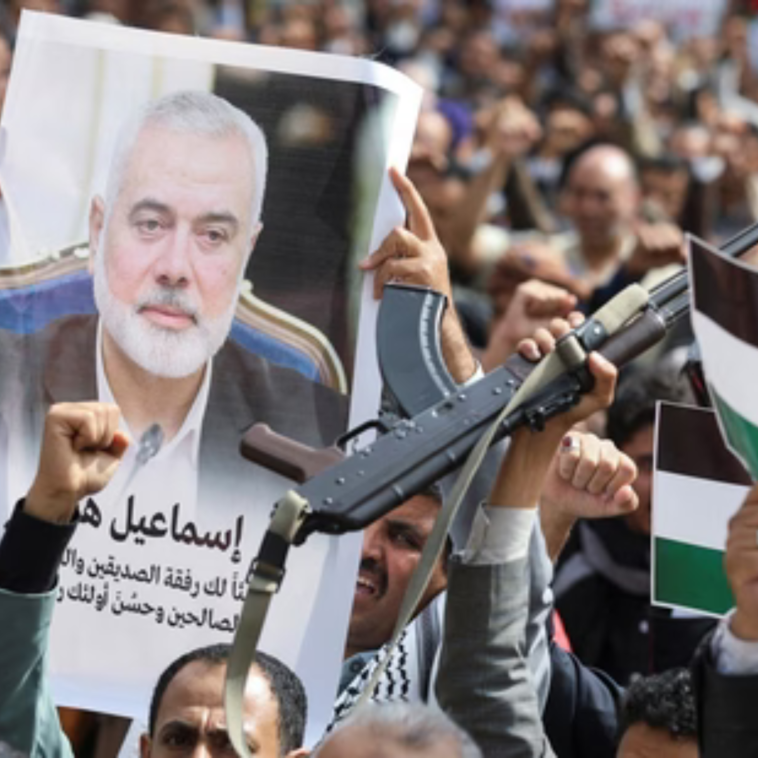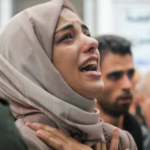On Wednesday, August 1, 2024, Ismail Haniyeh, the political chief of Hamas, was killed in Tehran by what Iran’s Revolutionary Guard Corps (IRGC) describes as a “short-range projectile.” The projectile, weighing approximately 7 kilograms (16 pounds), caused a substantial explosion, killing both Haniyeh and his bodyguard. The attack took place while Haniyeh was in Tehran attending the inauguration of Iran’s new president, Massoud Pezeshkian.
Iranian Accusations
The IRGC has directly accused Israel of planning and executing the attack, claiming that it was supported by the United States. This assertion marks a serious escalation in the already tense relationship between Iran and Israel. The IRGC’s account differs from Western media reports, which suggest that the attack may have involved explosives planted within the guesthouse where Haniyeh was staying.
These reports indicate that Israeli operatives could have smuggled and planted the explosives weeks in advance before detonating them remotely.
Security Failures and Consequences
The IRGC’s version of events has sparked significant controversy and embarrassment for the Iranian regime, especially given the heightened security surrounding Haniyeh’s visit. Following the incident, the IRGC has dismissed or arrested numerous officers as part of an internal investigation. The organization’s intelligence agency is now overseeing the probe, interrogating guesthouse staff, and seizing electronic devices.
The assassination has led to a comprehensive overhaul of security measures for Iranian politicians, including heightened protection for Supreme Leader Ayatollah Ali Khamenei, who was quickly escorted away from a prayer ceremony held for Haniyeh. The security lapses associated with Haniyeh’s death have raised questions about the effectiveness of Iran’s internal security apparatus.
International Reactions and Escalations
The murder of Haniyeh has exacerbated tensions between Iran and Israel, with both nations vowing retaliation. Iran’s response is expected to be significant, with the IRGC promising “severe punishment” for Israel. Hezbollah, a Lebanese militia supported by Iran, has also threatened reprisals, following the recent Israeli killing of its commander, Fuad Shukr.
The impact of Haniyeh’s assassination has extended beyond immediate regional tensions. Israel is now on high alert, and several international airlines have suspended flights to the country due to security concerns. In response to the escalating threat, the United States has deployed additional warships and fighter jets to the Middle East. The Pentagon’s move is aimed at defending Israel from potential retaliatory actions by Iran and its allies.
Impact on Ceasefire Talks
The assassination of Haniyeh has also affected ongoing ceasefire negotiations. US President Joe Biden acknowledged that Haniyeh’s death has complicated efforts to end the ten-month-old conflict between Israel and Hamas. The conflict, which began in October 2023 with a large-scale Hamas attack on Israel, has resulted in substantial casualties on both sides, with more than 39,000 Palestinians reported killed in Gaza.
Israeli officials, including the heads of Mossad and the internal security agency Shin Bet, have arrived in Cairo for renewed ceasefire talks with Egyptian intelligence officials. Despite these efforts, the death of Haniyeh has severely damaged prospects for a truce, given his significant role in the negotiations.
Broader Implications
The killing of Ismail Haniyeh represents a major escalation in the ongoing conflict between Israel and Hamas, potentially leading to further military actions and diplomatic strains. The situation remains highly volatile, with both sides preparing for possible intensification of hostilities.
As regional and international players weigh their next moves, the potential for a broader conflict looms large, affecting stability across the Middle East.





GIPHY App Key not set. Please check settings